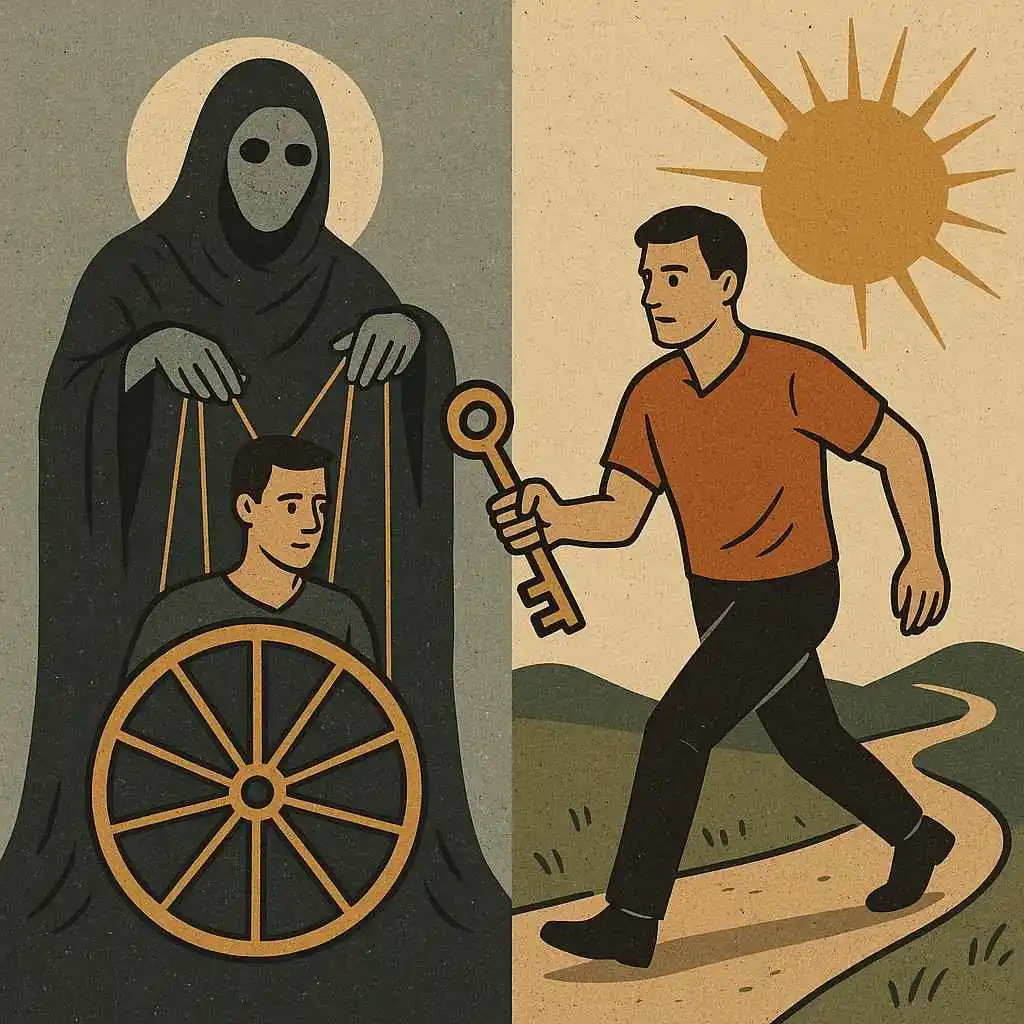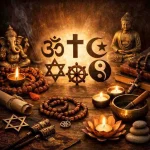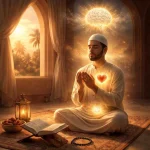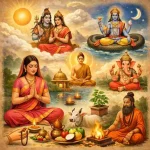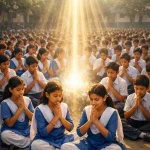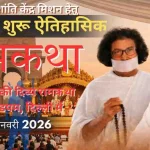The Role of Destiny vs Free Will in Human Life
The question of whether our lives are shaped by destiny or by our own choices has intrigued humanity for centuries. Philosophers, theologians, and thinkers across cultures have tried to answer this riddle — are we mere actors following a script written by fate, or do we have the power to write our own stories? The balance between destiny and free will continues to shape how we understand success, failure, morality, and even the meaning of life itself.
The Meaning of Destiny
Destiny, often called fate, refers to the belief that certain events or outcomes in our lives are predetermined. Many religious and philosophical traditions speak of a divine plan that governs all creation. In Hindu philosophy, this idea is expressed through “karma,” the principle that one’s actions in past lives influence the circumstances of the present. Similarly, in Christianity and Islam, destiny is seen as part of God’s greater design, where everything happens for a reason—even if that reason is beyond human understanding.
Belief in destiny can bring comfort. When things go wrong, one may find peace in thinking, “It was meant to be.” It helps people accept hardships and loss as part of a larger cosmic plan. Yet, it can also lead to passivity, where individuals stop striving to change their situations, assuming that whatever is destined will unfold on its own.
Understanding Free Will
Free will, on the other hand, represents the human ability to make choices and shape one’s future. It is the foundation of personal responsibility and moral decision-making. Without free will, ideas of right and wrong, sin and virtue, reward and punishment would lose their meaning.
In modern life, free will is often linked with self-determination—the belief that one can rise above limitations and change one’s circumstances through hard work and perseverance. People who emphasize free will tend to believe that success or failure depends on individual choices, not fate. This mindset has driven human progress, from scientific discovery to social reform. It empowers individuals to dream, act, and overcome challenges through their own decisions.
The Eternal Tug of War
While destiny and free will seem to be opposites, in reality, they often coexist. Life presents us with both — certain conditions we cannot change, and others we can. We do not choose where we are born, who our parents are, or the basic structure of time and nature. These are the unchangeable elements of destiny. But within these boundaries, we make countless choices every day — what to study, whom to love, what values to uphold — and these decisions create new paths and outcomes.
This interplay between fate and choice is visible everywhere. A person born into poverty (a matter of destiny) may work tirelessly to become successful (an act of free will). Similarly, an individual blessed with talent might waste it through neglect, proving that destiny alone does not guarantee achievement. In this sense, destiny provides the stage, but free will directs the play.
Philosophical and Spiritual Perspectives
Ancient philosophers like Aristotle believed that while fate exists, it does not control every detail of life. Human beings have rational minds capable of shaping their destinies through virtuous actions. The Stoics, meanwhile, taught that destiny determines external events, but inner peace comes from choosing how to respond to them.
In Indian philosophy, the Bhagavad Gita beautifully bridges the two ideas. Lord Krishna tells Arjuna that while destiny places him on the battlefield, his actions and choices determine his spiritual growth. The message is clear: one must act with responsibility, detached from outcomes, yet aware that divine will also plays a role.
Modern thinkers echo similar views. Psychologists suggest that while genetics and environment (destiny) influence behavior, individuals still have the power to make conscious choices (free will) that can change their future. This blend of fate and freedom defines the complexity of human life.
The Modern Relevance
In today’s fast-paced, uncertain world, the debate between destiny and free will is more relevant than ever. Many people face challenges beyond their control—economic instability, illness, or social inequality—making destiny seem powerful. Yet, stories of individuals who defy all odds remind us of the strength of human will. The rise of self-help movements, therapy, and motivational culture shows society’s growing belief in personal agency.
At the same time, spirituality and mindfulness remind us that not everything can be controlled. Accepting the limits of human power can lead to peace and humility. Striking the right balance between acceptance (destiny) and action (free will) may be the secret to living a fulfilled life. The dance between destiny and free will defines what it means to be human. Destiny sets the background, but free will paints the picture. Neither can exist meaningfully without the other. If everything were predetermined, life would be mechanical and purposeless. If everything were free, the world would be chaotic and unconnected.
Ultimately, destiny gives us the starting point, but free will gives us the power to decide how the story unfolds. Our choices, guided by wisdom and courage, shape the destiny that once seemed fixed. Perhaps the truth lies not in choosing one over the other, but in learning how to harmonize both—trusting the flow of life, while never ceasing to steer its direction.
~Religion World Bureau

